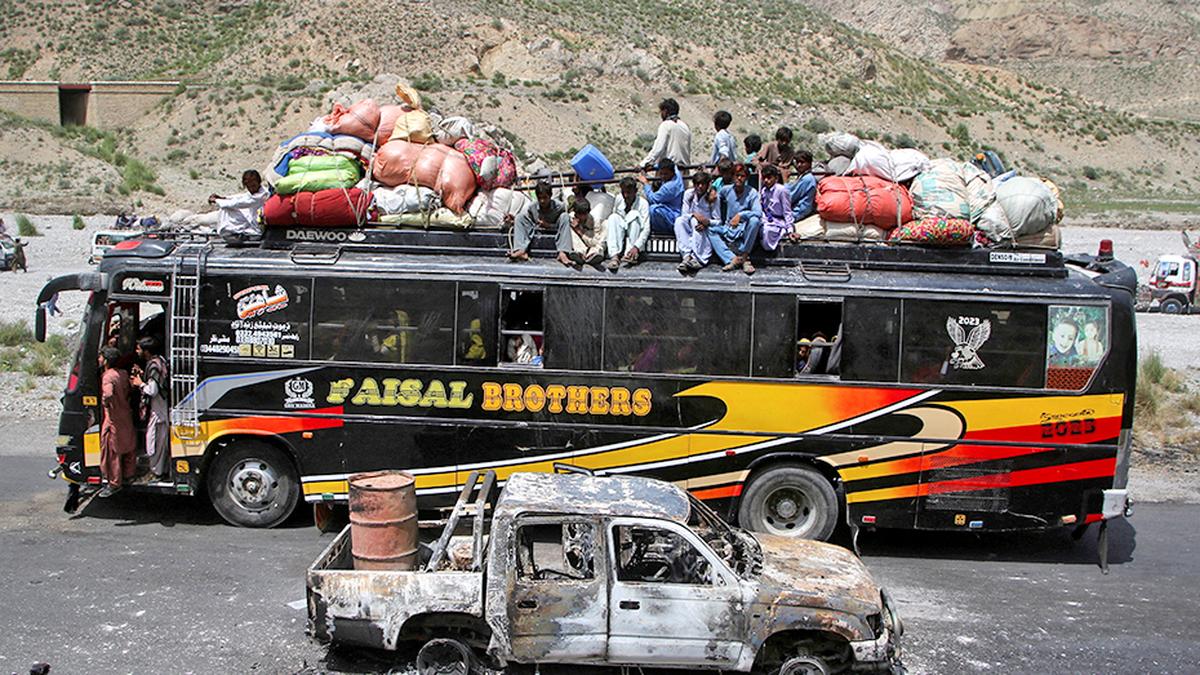The restive Balochistan province in Pakistan has once again been rocked by a wave of terror attacks, highlighting the persistent security challenges faced by the country. Following a string of deadly incidents claimed by the banned Balochistan Liberation Army (BLA), security forces have launched intelligence-based operations to counter the threat and bring the perpetrators to justice. These operations underscore the complex security landscape in Balochistan, marked by a confluence of separatist movements, sectarian tensions, and transnational terrorism.
A Surge in Terrorist Activity
The recent attacks by the BLA, a separatist group seeking independence for Balochistan, have resulted in significant casualties, including the deaths of 14 security personnel. These incidents have underscored the growing capacity of the BLA and its willingness to escalate violence. The attacks, which targeted civilians, security forces, and even individuals from other provinces, highlight the deep-seated grievances and resentment that fuel the insurgency in Balochistan.
The Motives and Objectives of the BLA
The BLA’s motivations are multifaceted. They seek independence from Pakistan, accusing the government of neglecting the region and exploiting its natural resources. The group has been accused of targeting civilians, government officials, and security forces to instill fear and weaken state control. Their operations have been primarily focused on Balochistan, but their attacks have extended to other regions of Pakistan, indicating a potential shift in their strategy and a wider threat to national security.
Pakistan’s Response and the Counterterrorism Operations
The Pakistani government has responded swiftly to the recent wave of attacks, deploying security forces to conduct intelligence-based operations in various districts of Balochistan. These operations are aimed at dismantling the BLA’s infrastructure, apprehending its leaders and members, and curbing its activities. The government has vowed to bring all those responsible for the attacks to justice.
The Challenges and Limitations of Counterterrorism Operations
While the government’s commitment to combating terrorism is evident, the challenges remain substantial. Balochistan’s rugged terrain, vast territory, and porous borders provide havens for militant groups. The presence of armed factions and their deep connections within local communities make it challenging for security forces to effectively counter the insurgency. Furthermore, the BLA’s strategy of resorting to hit-and-run tactics, ambushes, and remote detonations makes it difficult for security forces to predict and intercept their actions.
Addressing the Root Causes of the Conflict
The security challenges in Balochistan are intricately linked to the complex socio-economic issues plaguing the region. The Baloch people have long felt marginalized, underrepresented, and economically disadvantaged. The absence of political participation, economic deprivation, and perceived injustices have fueled resentment and provided fertile ground for militant groups to recruit and operate.
The Need for a Multi-faceted Approach
Addressing the Balochistan issue requires a multi-faceted approach that goes beyond mere military operations. The government needs to address the root causes of the conflict by engaging in dialogue with Baloch nationalist leaders, promoting inclusive governance, and investing in socio-economic development in the region. It also requires addressing the issue of resource exploitation, ensuring equitable distribution of resources, and strengthening local institutions to empower the Baloch community.
The Regional Dimension
The ongoing insurgency in Balochistan also has regional implications. The presence of armed groups, some with links to transnational terrorist networks, raises concerns about the potential for cross-border attacks and instability.
The Role of Neighbouring Countries
Pakistan has accused neighbouring countries, particularly Afghanistan, of providing safe havens for militants operating in Balochistan. This underscores the need for regional cooperation in combating terrorism and curbing the flow of weapons, finances, and fighters across borders.
Take Away Points
- The recent wave of terror attacks in Balochistan underscores the ongoing security challenges facing Pakistan.
- Addressing the conflict in Balochistan requires a comprehensive approach that includes both security measures and socio-economic development.
- Engaging in dialogue with Baloch nationalist leaders, addressing their concerns, and promoting inclusivity are critical to achieving long-term peace and stability in the region.
- Pakistan needs to work with regional partners to counter cross-border terrorism and prevent the use of their territories for harboring and training militants.
- Long-term success will require building trust, fostering a sense of inclusivity, and empowering the Baloch community through meaningful participation in decision-making processes.









